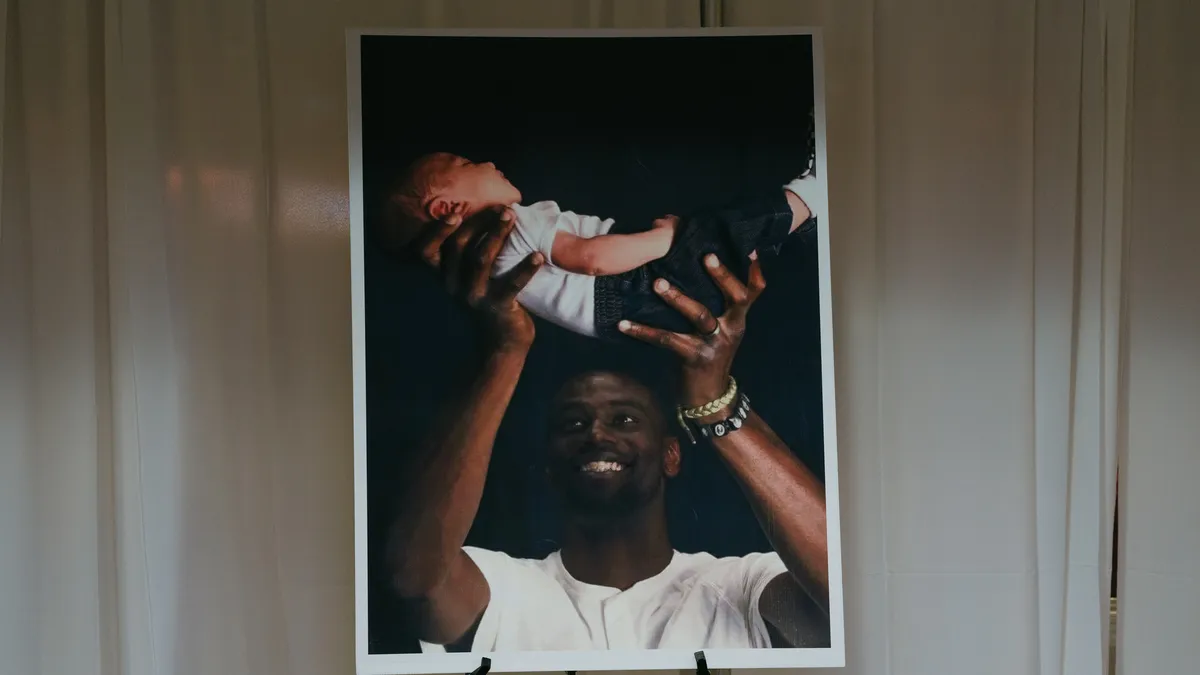Tech has long gotten a bad rap for being an old (White) boys club — but recently, the STEM field has brought its spirit of innovation to diversity, equity and inclusion. Intel Chief Diversity and Inclusion Officer and VP of Social Impact Dawn Jones has been a part of that change.
The Fortune 500 company tops lists such as JUST 100’s corporate social responsibility companies and the Human Rights Campaign’s Best Places to Work for LGBTQ+ Equality. Bob Swan, Intel’s CEO, wasn’t shy about standing up against police brutality and championing the Black community, writing in a May 31 memo, “Black lives matter. Period.”
HR Dive spoke to the DEI leader about how Intel is celebrating Black History Month throughout February and beyond.
On building a foundation for diverse leadership
Jones highlighted Intel’s “inclusive leader” program, a monthslong incubator for Intel workers that equips them with the skills to lead their peers in DEI — including leading employee resource groups. Intel also issues internal inclusion surveys, and publishes results externally in forms such as its CSR reports.
The internal survey yielded what Jones called “overwhelming” results: About 78,000 out of the approximately 120,000 employees took the survey. It was important to Jones to acknowledge the successes. “Because frequently, in this work, we jump right to, ‘Where can we improve? Where are the gaps?’ But we also want to celebrate where employees think that they are feeling good about Intel’s culture and our inclusive journey,” she said.
Another crucial element was anonymity, Jones explained. She said it’s helpful for the Intel workers who don’t want to share certain sentiments under their own name. In turn, she said, “They could be comfortable sharing the full experiences that they have.”
The feedback that the Intel CDIO shared was that employees appeared to be “leaning into their cultural experiences” with their co-workers. “People want to belong. They want to feel heard. They want to be psychologically safe,” she said.
An area of interest regarding Intel’s talent pipeline was tapping talent from “nontraditional” backgrounds. For decades, employers across industries have gone back and forth between requiring four-year degrees for entry-level positions and championing skills-based hiring — a debate for which the U.S. Equal Employment Opportunity Commission convened a panel last summer, HR Dive reported.
“Tech has very much been focused on this school, this GPA, this talent,” Jones said. “There is talent out there, in so many places, that may have not had the same opportunities and experiences,” Jones said. “How can we tap into the talent that we know we need to drive our companies forward?”
On a multifaceted approach to heritage months
Intel supports its workers’ cultural experiences during Black History Month through a variety of events – from a red beans and rice cooking session, to internal and external speakers taking the mic. With all of Intel’s heritage months, Jones said, leadership seeks to educate employees, but also nudge them toward action.
“It’s one thing to just get in a room and hear a bunch of information. But it’s another thing to kind of put the responsibility on those who are participating to go learn more,” Jones explained. “We had one of our African American vice presidents come in and share her journey: where she came from, how she grew up, how that informed how she shows up in the workplace.”
Another actionable step Intel is taking is in its Alliance for Global Inclusion participation. The collective is composed of companies like Dell, Providence Health and Snap, Inc. The goal, Jones explained, was to imagine and realize better equity outcomes. No standardized methodology exists, she pointed out. The CEOs of companies in the Alliance for Global Inclusion met in 2022 — a convening that felt promising, according to Intel’s CDIO.
At a Black History Month 2023 event, Jones recalled being asked, “When did you get interested in Black History Month?” She shared a core memory with HR Dive. Jones’ mother used to turn on PBS to educate Jones on classic Black role models, such as Martin Luther King, Jr. and Rosa Parks. “But we never hear about those that have created inventions such as the stoplight,” Jones said, referring to Garrett Morgan, the African American creator of the three-position traffic light. She recently found out that an African American woman, Marie van Brittan Brown, created the first home security system.
Since she was young, Jones has taken the month of February to learn about unsung Black heroes — from inventors and innovators to politicians and athletes.
On the humanity of her work
“Sitting in this seat and looking at the work I oversee, I’m really interested in the human condition,” Jones explained. “We all have how we were raised and it’s different based on family dynamics, location, era. All those things go into everybody we see at work every day.” Talent shows up at the workplace with both their past and present lived experiences.
This ties into her emphasis on a representative workforce. “As we continue to evolve as a country, it is critically important for companies to be reflective of our customers, our key stakeholders and our communities that we serve — which are not a monolith,” Jones said. “It’s important to have different viewpoints and perspectives. That’s what diversity or representation would bring.”
Additionally, the future of DEI, she says, lies in systems. For example, Jones brought up AI that can vet or hire applicants. (This is another hot HR topic that the EEOC has been discussing as of late.) She acknowledged that while it can make HR’s job easier, attention should also be paid to the programmers behind the AI and their perspective.
On Tyre Nichols and his death’s nuanced impact
The effect of police beating of Tyre Nichols — ripe with racial complexity — is another factor Jones addressed, in response to reports that DEI progress is stalling. What advice does Dawn Jones have for HR professionals navigating rough emotional waters with employees?
“It’s really tough,” she acknowledged, mentioning as well the increased rate of mass shootings in 2023. “There is so much going on in society.” Jones used words like “discord,” “dissension” and “chaos” to describe the state of the world.
“Our employees feel it and live it every day,” she said. If 2020 laid a foundation for companies, it was that of normalizing employee safe spaces and normalizing conversations about how current events impact professional productivity.
“I have heard that there are companies who may not be focusing clearly or [may be] changing their focus on DEI,” she said. “I would tell HR professionals, ‘Stay the course.’”
Jones also didn’t miss a beat in admitting, “We don’t have all the answers.” Sometimes, in instances such as Tyre Nichols’ death, there may not be a solution, she said.
“We don’t have the answer for that. We’re still trying to figure it out as a country. But what we do is have empathy. We have understanding,” she offered. “We meet employees where they are. We treat them with respect — all perspectives. We try to ensure that the culture that we are creating within our companies continues to create a space for our employees, where they are psychologically safe.”
This provides an environment for talent to flex the full power of their skill sets — importantly, Jones notes, in a setting where workers know that they will be respected.
Correction: A previous version of this article misstated Dawn Jones’ title.






















